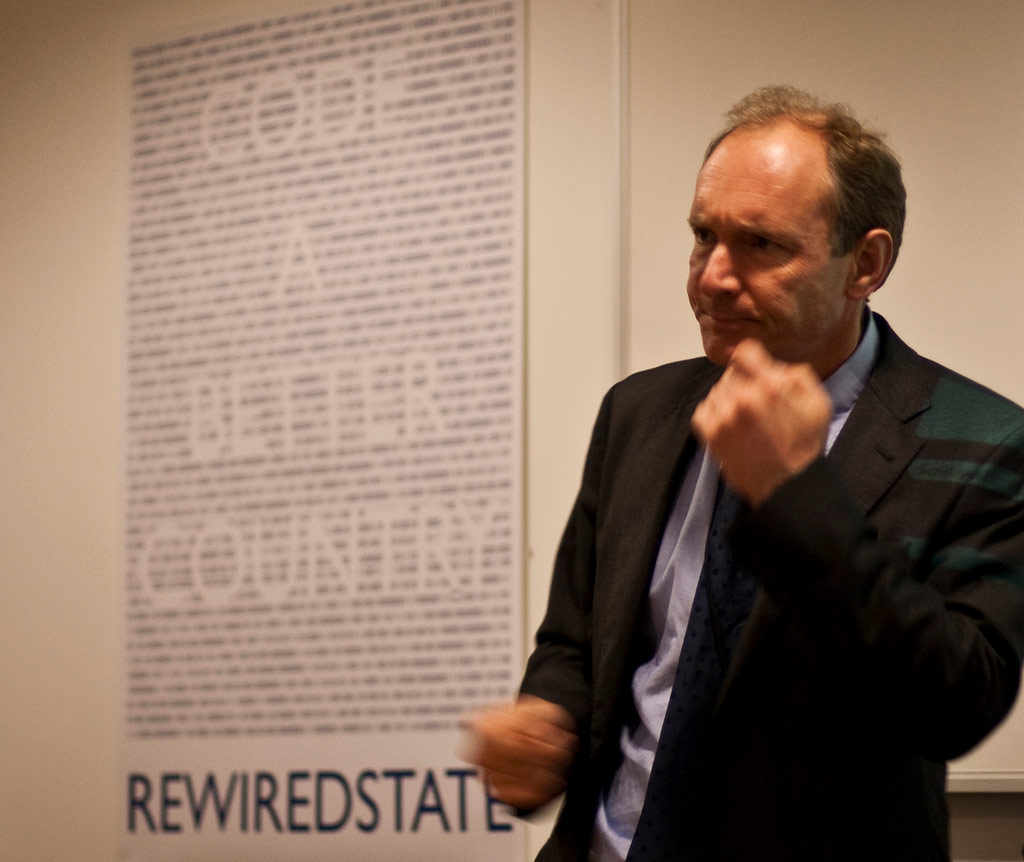
Sir Tim Berners-Lee, widely credited with inventing the web in 1991, recently received the Turing Award. The prize is basically a Nobel for nerds—and it includes a $1 million in funds courtesy of our friends at Google.
The early and sometimes goofy web that Sir Berners-Lee created is now a sophisticated, trusted and (sometimes hostile) reserve of information, ideas, and communities. We are blessed to have this wealth of collected information and connectivity and owe much to Berners-Lee and those early assemblers of markup and extensive system planning. As many programmers will attest, code is debt; behind the entirety of the web are countless hours of design and technical thinking and development that cannot and will not ever be repaid.
Berners-Lee had an overarching vision of a web that is two-fold. It must be an accessible vehicle of ideas and, at the same time, it must be a secure place where private information can stay private. In an interview with The Guardian, he discusses the risks to both access and privacy and the rise of click-baiting.
We must be very careful about falling in love with techno-utopian dreams and those who promote them. But Berners-Lee’s vision of an open yet private internet is still critically important as we move to the next phase of the web.
This next web will likely be one that combines artificial intelligence and automation with much more hand-crafted visitor experiences. On the one hand, AI and its application on the web will make parts of our lives simpler, such as reserving hotel rooms or donating funds. We will be delivered new platforms to manage our daily affairs, as part of the terms of agreement, artificial intelligence will understand us. Sometimes that understanding will be uncanny, as in when an online store anticipates our need for specific food staples or new bedsheets.
On the other hand, I can foresee us users of the web demanding more personalized, attentive experiences that help us make decisions and connect meaningfully and confidently with all types of brands and networks. This web will be a more attractive one from both a usability and a visual perspective. Websites and applications will confidently showcase the services and goods of companies and organizations with greater transparency and will help us imagine ourselves using that car, working at that company, or being helped by that consultancy. This web will be built with more thought and consideration than we can imagine at the moment. And it will be more sustainable than it is now, taking into consideration how much energy it takes to build, maintain, and power it.
The Web does not just connect machines, it connects people.
–Tim Berners-Lee
As this next web gets built, we should keep in mind that a more conscientious and sustainable web means building for visitors’ needs as much as organizational ones. In creating meaningful, scalable websites and applications, accessibility of information and privacy of users are paramount.
My congrats to Sir Berners-Lee in gaining the recognition he so deserves for setting us on the right path and for continuing to advocate for a web that is more honest, deliberate and interoperable. Accessibility and privacy are two fundamental pillars in supporting civil society. They can and really must co-exist for modern democracy to function. And because governments and companies do not always work in the public interest, as makers and users of the web, we must hold governments and companies accountable on both.
Anyone who has lost track of time when using a computer knows the propensity to dream, the urge to make dreams come true and the tendency to miss lunch.
–Also Tim Berners-Lee
The choice is whether the next web fosters additional barriers, information scarcity, and fears of intrusion—or whether it affords us access, transparency, and assurance. I know which web I want.
Photo of the Fightin’ Berners-Lee by Paul Clarke - Own work, CC BY 3.0, Link

